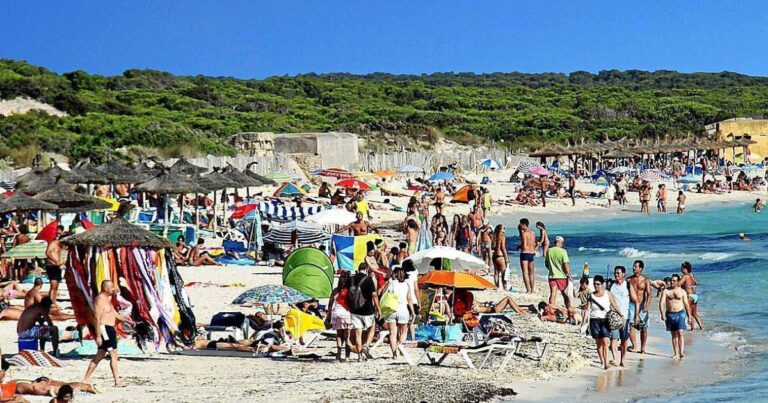Opinions on the protests are almost evenly split
This big public consultation on the government’s plans, as you know, is all about the future economy and tourism sustainability of Mallorca and the Balearic Islands. The question is: should all stakeholders be consulted?
Despite this consultation, there will be a huge amount of input. That’s to be expected, given that 140 organisations were represented one way or another at the launch of the so-called Sustainability Pact. There are many stakeholders, some of which may not be directly involved, but they have spokespeople. For example, the Mallorca Hotels Federation, which knows what tour operators think and want; as well as the Balearic Islands Travel Agents Association. Among the 140 organisations are some with a presence both in the oversaturated Mallorca and in business headquarters on the Spanish mainland and further afield.
Another question. Who decides on the agreement? Foreigners or foreign interests? Why should they decide? Mallorca may operate on a global market, but not the whole planet. It is therefore clear that it will be greatly influenced by this market. But Mallorca (and the Balearic Islands) must decide. The opinion coming from abroad shows that long before there was talk of an agreement, TUI had the common sense to say that decisions on tourism are for the people of the Balearic Islands, and in particular to mention the restrictions. TUI also acknowledges that it has reached its limit when it comes to the growth of the island. There is no room for more growth. Wise TUI.
No. There are foreign stakeholders, but this is like an election, and only residents have the right to vote. This is their land. Sometimes, and often, it may not seem like it. But what about a much bigger group of stakeholders than a bunch of tour operators and budget airlines? The tourists themselves.
One could argue that the government’s advisory opinion website should have a mirror site for tourists, if only because it would be interesting to collect their opinions. But will their opinions be taken into account? Should they be taken into account? Foreign companies should be excluded, but they do not necessarily, or even at all, have an emotional attachment to the islands, and this attachment, fostered by many visitors over the years, does not preclude a degree of objectivity.
Evidence of this can be seen in a tourist opinion survey carried out by the Parma-based Gadeso Foundation, which, as far as I know, is the only research organisation (of any organisation, including tourist authorities) with the capacity to regularly collect tourist opinions once a year.
In the latest study by the Foundation, the goal of the survey has changed compared to previous studies. There is one big difference: what do tourists think about the recent protests? The survey found that 32% think the protests are wrong and 28% think they are right, since the islands depend on tourism. Another 29% think the protests will not change anything, and the rest are unsure.
Opinions are almost evenly split. But when it comes to perceptions of crowding, the main reason for the protests, 61% believe it is a little or a lot worse than before. So, while this opinion may be partly based on emotional attachment, it is certainly based on experience.
There was a gap between the 2019 and 2022 tourist opinion surveys for obvious reasons, but in a post-COVID world in 2022, where for some inexplicable reason some tourism experts predicted that summer crowds would be less than before, the crowding rating not only got worse, but it got a negative score. Reaching a negative score is quite an achievement, but that’s the result, minus 4 for Mallorca and minus 3 for the whole of the Balearic Islands.
Gadeso points out that overcrowding affects ratings of general services such as infrastructure and public services, which have declined in the latest surveys, creating the impression that visitors are not too far removed from residents’ perceptions.
Holiday marketing is keen to promote the idea of ”experience” (it never used to be, but it is now), but the bottom line is that the experience is being ruined by overcrowding. All this makes me feel that tourists are not just stakeholders, and that their voice should be listened to.
Ah, but what are the possible objectives and consequences? This is an even bigger question, the answer of which was given by a foreign stakeholder, namely TUI. But did you know? Restrictions imply the consent of all stakeholders, whether directly consulted or not.

